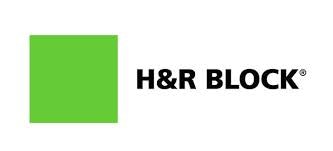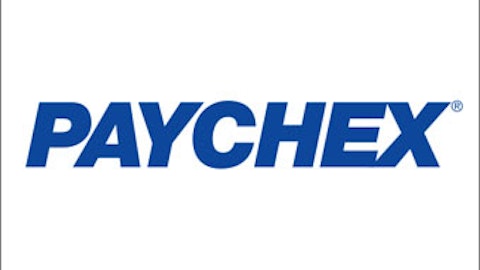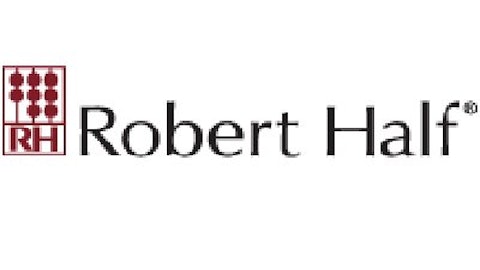H&R Block, Inc. (NYSE:HRB) is no stranger to drama. Over the past several years, it has attracted a lot of negative attention. However, this hasn’t affected the stock price. Can H&R Block, Inc. (NYSE:HRB) continue its relentless ascent, or is there a long-term threat that should keep potential investors on the sidelines?
The H&R Block soap opera
A software glitch led to to delayed refunds for at least 600,000 taxpayers who filed between Feb. 14 and Feb. 22 this year. CEO Bill Cobb offered a sincere apology for this matter, and it was handled expeditiously, but these 600,000+ taxpayers are less likely to use H&R Block in 2014.
Also earlier this year, H&R Block, Inc. (NYSE:HRB) made an attempt to stop Intuit Inc. (NASDAQ:INTU), the maker of TurboTax software, from running two attack commercials on television. Intuit Inc. (NASDAQ:INTU) wanted to point out that many H&R Block tax preparers aren’t professional CPAs, and that many are plumbers, nurses, and retail clerks. The Federal Court denied H&R Block’s request to stop the ads.
H&R Block also has to deal with the stigma that it charges unnecessary compliance fees. Many taxpayers don’t notice this fee, because it’s usually only $2 to $4, which adds up for H&R Block, Inc. (NYSE:HRB). The IRS doesn’t charge a compliance fee, so there’s no reason for H&R Block to have this fee — unless it’s simply looking to add to its revenue.
Cutting costs
With inconsistent revenue over the past five years, and only two profitable quarters in the last five, H&R Block is cutting costs rapidly. The company closed 200 underperforming offices, laid off 350 employees, and reduced its retail exposure by pulling out of Wal-Mart completely.
At the same time, H&R Block, Inc. (NYSE:HRB) is returning more capital to shareholders. It has extended its quarterly dividend streak to 203, and it has bought back 12.3 million shares in fiscal year 2013.
H&R Block vs. peers
H&R Block outperformed peers over the past year, but what about the past five years? Check out this stock chart:
Compared to H&R Block and Paychex, Inc. (NASDAQ:PAYX), Intuit has been the big winner, and for good reason. More than 25 million people used TurboTax in 2012, and it dominates the online market.
H&R Block, Inc. (NYSE:HRB) foresaw industry trends in 2011 and attempted to acquire 2SS Holdings — the developer of tax-prep program TaxACT, a TurboTax rival — for $287.5 million. But a federal judge blocked the acquisition, citing diminishing competition in the space, which would lead to higher prices, collusion, and lower quality. Looking back on that decision, it probably wasn’t fair to H&R Block.
What many taxpayers might not yet realize is that with TurboTax, doing your taxes simply requires typing numbers into boxes. All the calculations are done for you. Despite both H&R Block and Intuit offering tax service software, this is a big advantage for Intuit. TurboTax is a well-known name throughout the United States.
If H&R Block wants to catch up online, it’s going to require a major marketing effort. This presents a dilemma because H&R Block is currently cutting costs in order to improve the bottom line. At the same time, the only way to compete over the long haul is to become more recognized as an online brand.
If you want to take a different angle by investing in a company that offers tax services for small to medium-size businesses in the United States and Germany, then consider Paychex, Inc. (NASDAQ:PAYX).
The company’s revenue increases on an annual basis, and it always delivers profits. It also has more than $550 million in cash and no debt. This keeps Paychex, Inc. (NASDAQ:PAYX)’s dividend safe, and considering the yield is currently 3.60%, it’s a nice bonus to any stock appreciation.
All three companies have strong balance sheets, but only two companies offer a dividend yield above the industry average of 1.83% — Paychex at 3.60% and H&R Block at 2.80%. Intuit currently yields 1.20%.
Conclusion
Despite Intuit Inc. (NASDAQ:INTU) offering the lowest yield, it’s likely to be the best long-term performer of the group thanks to TurboTax’s brand recognition and the continuing momentum toward do-it-yourself tax preparation.
H&R Block, Inc. (NYSE:HRB) might be performing well now, but it’s behind industry trends, which limits its long-term potential.
The article The Best Investment in Tax Preparation originally appeared on Fool.com and is written by Dan Moskowitz.
Dan Moskowitz has no position in any stocks mentioned. The Motley Fool recommends Intuit and Paychex. The Motley Fool owns shares of Intuit. Dan is a member of The Motley Fool Blog Network — entries represent the personal opinion of the blogger and are not formally edited.
Copyright © 1995 – 2013 The Motley Fool, LLC. All rights reserved. The Motley Fool has a disclosure policy.






